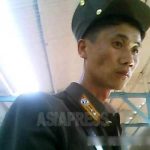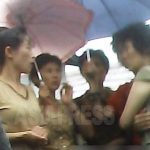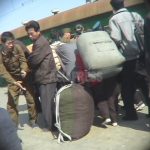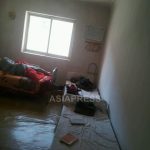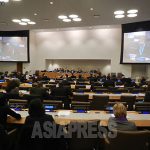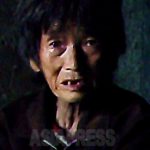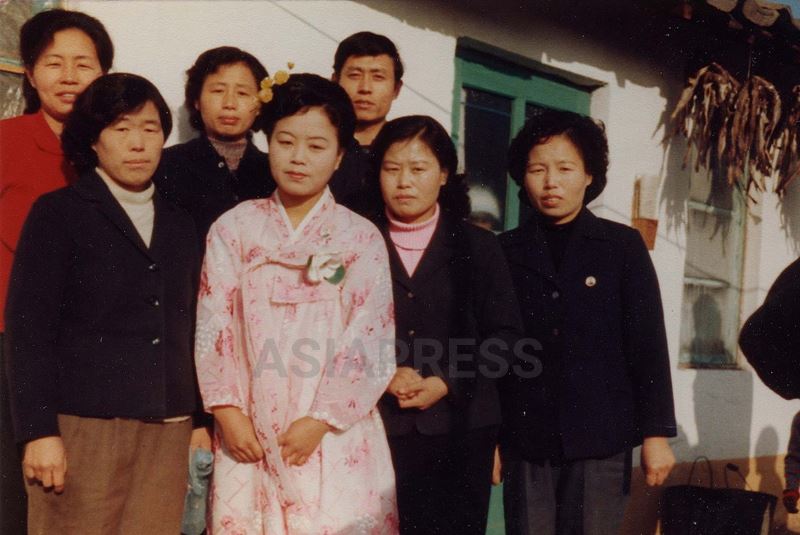
“The last letter I received was in January last year, and I haven’t received any replies since then. Maybe they are all dead now.”
Ms. P, an ethnic Korean resident of Japan living in a town in the Kansai region, said, “I have not heard from my relatives who are living in North Korea for a long time.”
When the COVID-19 outbreak began in Wuhan, China at the end of January 2020, the Kim Jong-un regime immediately sealed the border, banned people from traveling to and from the country, and halted most trade. Postal services through China were also stopped. Japanese post office has stopped accepting mail to North Korea since the middle of last year.
Related Articlefa-arrow-circle-right <Inside N. Korea> Hyesan Lockdown Lifted Early Due to Local Reports of Starvation
Ms. P’s parents and her eight younger siblings moved to North Korea from Japan in the 1960s as part of a North Korean project to repatriate Korean people from Japan. Ms. P, who was the only one of her family to remain in Japan, supported her family by working tirelessly and sending remittances for almost 60 years. Despite these efforts, her younger sister was among the many North Koreans who died from starvation in the 1990s. When her parents also passed away, it was impossible for Ms. P to attend their funeral.
“I’m frustrated that I can’t be there for them. My connection with my sisters and brothers may finally end because of the COVID-19 pandemic,” says Ms. P.
Due to the decades of effort to provide aid to her family, Ms. P is very aware of the hardships faced in North Korea and she speaks with a tone of resignation.
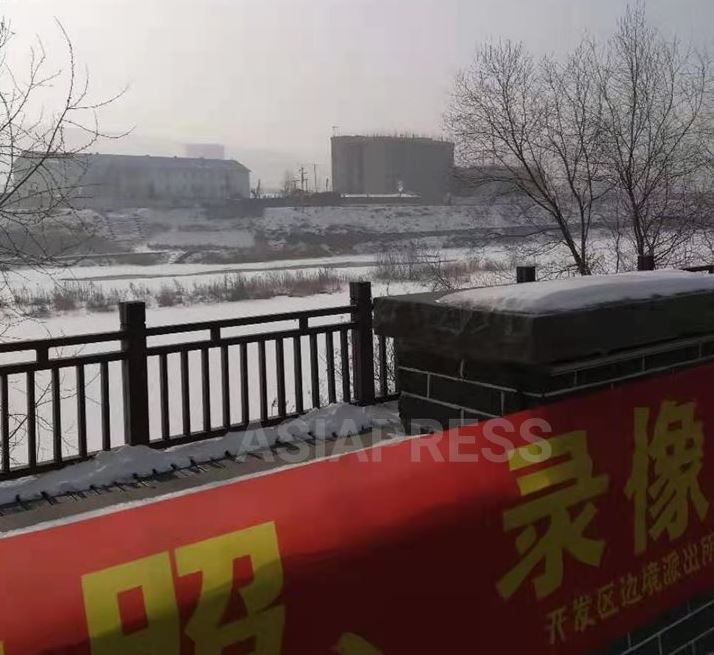
◆ A Letter from Japan
Mr. J, living in South Korea, is worrying about his family in North Korea too. Mr. J was born in the Kansai region and, in his teens, moved to North Korea with his family in the 1970s. He defected from North Korea about 10 years ago and has been sending money to his son and daughter he left back in North Korea ever since. He has to send remittances through an acquaintance in Japan- as it is impossible to send letters and money to North Korea from South Korea.
In his letters, Mr. J has had to pretend to be an “uncle” living in Japan, in order to be able to continue communicating with his children. Mr. J has in his possession a bundle of letters addressed to “uncle” from his daughter and son.
Each letter begins with a greeting expressing concern for Mr. J’s health, followed by an update on their recent activities, such as moving to a new place of work, the appreciation for the remittance of money, and concludes with the words, “I hope to see you again someday.” Sometimes, there was a photo enclosed with the letter, showing a happy expression on their faces wearing the clothes they bought with Mr. J’s money. One can only imagine their frustration and sadness for not being able to call him “Aboji” (father).
The bond with his children, which was arduously maintained through the letters sent from Japan, is now in danger of disappearing altogether due to the coronavirus. “All I can do is wait and believe that they are safe," said Mr. J. He added that he plans to save up more money to send to them once it is possible.
◆ Media and diplomats have largely withdrawn from Pyongyang…the domestic situation is troubling
The North Korean government has been urging foreigners stationed in Pyongyang to leave the country since last year, and the only ones remaining are embassies of a limited number of countries, such as China, Russia and the Czech Republic, and officials of a few international organizations, such as the World Health Organization (WHO). The Russian state news agency and the official newspaper of the General Association of Korean Residents in Japan, have also left the country. Foreign media outlets that had branches in Pyongyang, including KYODO, AP and AFP, have not been able to get reporters into the country for more than a year.
※ The Chinese Xinhua News Agency was reported to have withdrawn last year. For the web edition, 2 reporters continue to write articles from Pyongyang, however, their articles since March of last year have only used quotes from North Korea state media or quotes provided by the Chinese embassy, with no original photos. When contacted, Xinhua’s head office in Beijing, replied that they could not confirm the withdrawal of their reporters.
Our reporting partners living in North Korea have told me that although there are no major outbreaks of COVID-19, the number of people suffering from hunger and disease is increasing due to the shortage of goods and the economic paralysis caused by excessive quarantine policies. However, information is limited.
The light that shines on North Korea is getting fainter and fainter, and access to information inside the country is gradually fading, covering the country in darkness.
※This article was originally published in the Osaka edition of the Mainichi Shimbun on February 16, 2021, and has been revised.
- <Emergency Interview>Lockdown Death Toll Climbs in Hyesan: “We are Dying Due to Lack of Medicine and Food” (2021-02-24 12:18:47)
- <Inside N. Korea> Several Defectors Shot and Killed at Chinese Border: Poverty and Starvation Forces Residents to Choose Between Deadly Border Crossing or Suicide (2021-02-10 10:58:32)
- <Inside N. Korea> Crime and Suicide on the Rise as Border City Residents Face Starvation in Second 30-Day Lockdown (2021-02-09 12:04:08)
- <Emergency Interview on North Korea> A woman living in Hyesan City under lockdown, speaks in a painful voice: “If this continues, I will starve to death.” (2021-02-08 17:57:07)
- <Inside N. Korea> Nationwide “Compost Battle” Begins: Kim Jong-un’s Huge Demand for Home-Made Fertilizer Spurs Human Feces Thievery (2021-02-01 10:01:59)
